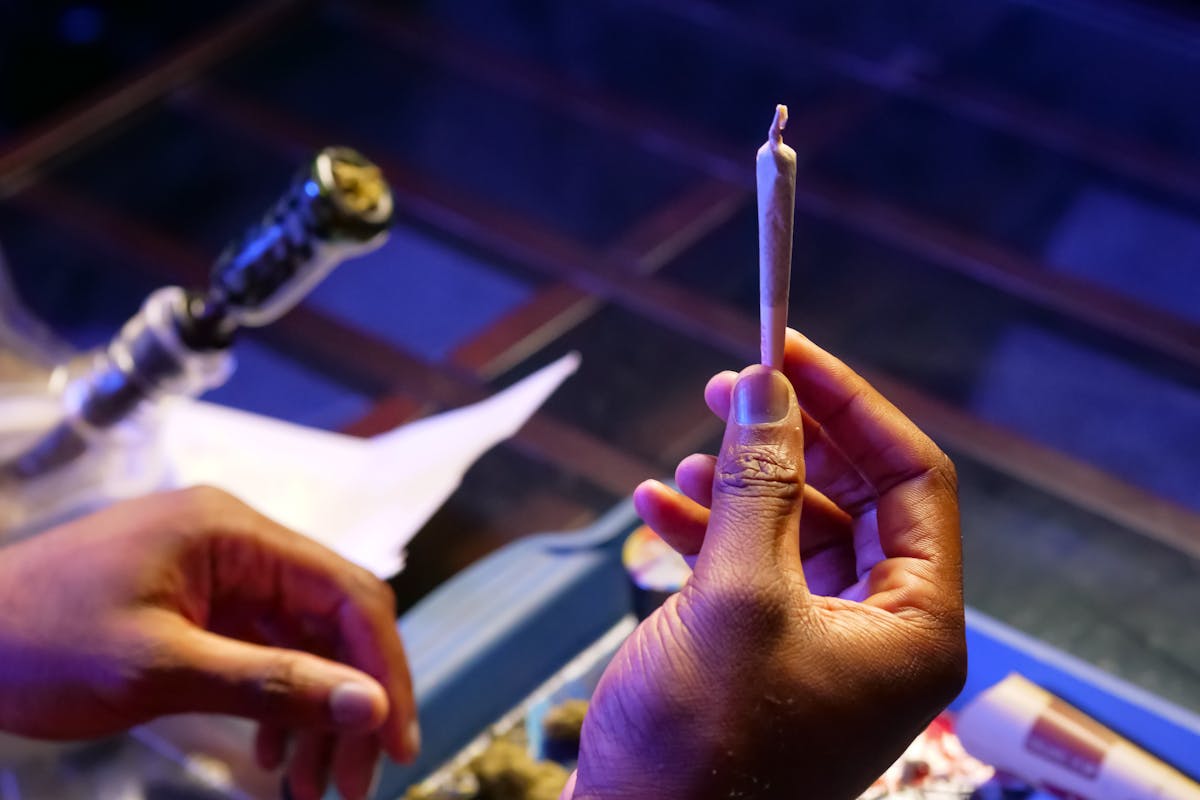The practice of expunging certain marijuana convictions raises intriguing questions about social justice, fairness, and the ongoing evolution of societal attitudes towards cannabis. As many jurisdictions reevaluate their stance on this issue, and consider the potential benefits of erasing minor marijuana offenses from records, the impact on individuals and communities is profound. The discussion, however, extends beyond just the reintegration into society; it encompasses the challenges, implications, and the broader societal repercussions of such actions.
Understanding Marijuana Convictions
The intricacies of marijuana convictions, a topic often shrouded in complex legal jargon, are vital to understand as we explore the broader discussion of expungement. In its most basic form, a marijuana conviction is a legal sanction imposed upon an individual who has been found guilty of possessing, selling, or cultivating cannabis, a substance classified as a controlled substance under federal law.
Over the years, the enforcement of marijuana laws has led to a significant number of convictions, with the severity of the sentences varying depending on multiple factors. These factors include the quantity of marijuana involved, the intent (personal use or sale), and the offender’s past criminal record.
Marijuana decriminalization, a policy that lessens the penalties associated with marijuana use and possession, has been perceived as a progressive step towards sentencing reform. Yet, this policy change does not negate past convictions, leaving many individuals with criminal records that hinder their employment and housing opportunities, among other things.
Understanding these convictions in the context of the larger legal landscape is imperative, as it informs the ongoing debate about the expungement of marijuana-related offenses, a process that aims to erase these convictions from an individual’s criminal record.
The Evolution of Marijuana Laws
The trajectory of marijuana laws has seen significant shifts, starting from strict prohibitions to a growing trend of legalization. It is essential to understand this evolution, as it provides context for the current discussions around expungement of marijuana convictions. We will examine the historic cannabis prohibitions and the subsequent journey towards decriminalization and legalization.
Historic Cannabis Prohibitions
Over the course of history, cannabis laws have seen significant shifts, exhibiting a dynamic evolution that stretches back centuries. The cannabis history traces back to ancient times when it was used for medicinal and spiritual purposes, demonstrating its prolonged use in human society. However, the 20th century marked a turning point as various nations, led by the United States, moved towards criminalizing the substance.
The prohibition impacts resulted in the widespread criminalization of marijuana use and possession, with law enforcement agencies dedicating significant resources to enforcing these laws. These prohibitions were largely driven by societal attitudes and misconceptions about the drug, rather than empirical evidence about its effects. These views were embedded in the international legal framework with the 1961 Single Convention on Narcotic Drugs, which classified cannabis as a Schedule IV drug, the most restrictive category.
These prohibitions resulted in widespread social and economic consequences, including the criminalization of millions of individuals, many for minor possession charges. The enforcement of these laws also disproportionately impacted marginalized communities. This period of prohibition has left a lasting legacy that continues to shape current debates about cannabis legalization and the expungement of past convictions.
From Criminalization to Legalization
In a dramatic shift from the era of prohibition, numerous jurisdictions have initiated a transformational journey from criminalization to the legalization of marijuana. This shift is marked by an increasing number of states and countries embracing marijuana decriminalization, reflecting changing societal attitudes towards the plant.
The decriminalization of marijuana entails reducing or eliminating criminal penalties for possession and use. This move is often the first step towards full legalization, which allows regulated production, sale, and use. The primary motivation behind this change is the recognition of the disproportionate impact of criminal penalties on certain communities, coupled with an understanding of the potential therapeutic benefits of cannabis.
Legalization benefits extend beyond personal use. They encompass economic, social, and criminal justice aspects. Economically, the legal marijuana industry has generated billions in tax revenue and created numerous jobs. Socially, it has led to a decline in marijuana-related arrests, reducing the burden on legal systems. Finally, from a criminal justice perspective, it has opened the door for the expungement of certain marijuana convictions, rectifying past injustices.
What Is Expungement?
Expungement, as a legal term, refers to the process wherein a conviction is fundamentally erased from a person’s criminal record. It is a mechanism established by law to restore an individual’s status to that prior to the conviction. Legal definitions of expungement may vary from jurisdiction to jurisdiction, but they generally involve the removal of a conviction from public records.
Expungement benefits are manifold. For one, it can notably enhance a person’s employment prospects. Many employers conduct background checks on potential employees, and a criminal record can be a substantial barrier to employment. With expungement, the conviction is no longer visible in such checks, opening more doors for the individual.
Furthermore, expungement can restore certain civil rights, such as voting or owning a firearm, depending on the jurisdiction and nature of the conviction. It can also have a profound psychological impact, freeing individuals from the stigma associated with a criminal record.
In essence, expungement serves as a legal tool to mitigate the long-term consequences of a conviction, potentially transforming lives by providing a fresh start. However, it is important to note that not all convictions are eligible for expungement, and the criteria for eligibility vary widely.

Eligibility for Marijuana Conviction Expungement
Eligibility for marijuana conviction expungement varies widely based on the specific laws and regulations of each state. A detailed evaluation of the individual’s case is essential to determine the possibility and process of expungement. A broad understanding of these eligibility criteria, case evaluation procedures, and state-specific laws can help individuals navigate the complexities of the expungement process.
Understanding Expungement Eligibility
Though the laws differ by state, it’s vital to comprehend the eligibility criteria for marijuana conviction expungement. Typically, eligibility is contingent on the nature of the conviction, the time elapsed since the conviction, and the existence of any subsequent criminal activity.
For instance, in many states, only those convicted of minor marijuana offenses, like possession of small amounts, are eligible for expungement. This is often linked to the decriminalization or legalization of such amounts in those states. More severe offenses, such as selling or trafficking, may not be eligible for expungement.
The period since the conviction is another significant factor. Some states require a waiting period, often several years, before an individual can apply for expungement. This is to demonstrate a consistent period of lawful behavior post-conviction.
Lastly, eligibility may be forfeited if the individual has committed subsequent offenses. This stipulation is in place to guarantee that the benefits of expungement are reserved for individuals demonstrating genuine reform.
Understanding the eligibility criteria is the first step towards reaping the expungement benefits. These benefits include removing barriers to employment, housing, and social services, which often result from a criminal record. The specifics, however, will vary by state.
Case Evaluation and Process
Having established an understanding of the eligibility criteria for expungement of marijuana convictions, it is pertinent to reflect on the evaluation of individual cases and the associated process.
Case evaluation is the first critical step in the expungement journey. This involves a thorough review of the individual’s criminal record to determine if the marijuana conviction qualifies for expungement based on the jurisdiction’s laws. The evaluation considers factors such as the severity of the offense, the individual’s role in the crime, and the time passed since the conviction.
Following the case evaluation, the process steps commence. It usually begins with the preparation and filing of an expungement petition, often conducted by a legal expert. This petition outlines why the individual’s record should be expunged, demonstrating how they meet the eligibility criteria. Upon successful filing, a court hearing is scheduled.
During the hearing, the court will scrutinize the individual’s reasons for expungement and assess any potential objections from the prosecution. The court takes its decision after careful consideration of all factors, including societal interests and the individual’s rehabilitation efforts since the conviction. If successful, the marijuana conviction is expunged from the individual’s record, providing them with a fresh start.
State-Specific Expungement Laws
In the domain of expungement, it is essential to note that laws and eligibility criteria can differ markedly from one state to another. These state variations are influenced by a range of factors, including prevailing public perception and legislative changes. In some states, for instance, expungement procedures are straightforward and clear, while in others, they are fraught with legal challenges.
Assessing eligibility for marijuana conviction expungement necessitates a thorough understanding of specific state laws. Certain states stipulate that only minor marijuana convictions can be expunged, whereas others are more lenient, allowing for the expungement of more serious convictions. Additionally, the time elapsed since the conviction and the individual’s conduct during that period often play a significant role in determining eligibility.
Advocacy efforts are ongoing across numerous states to simplify and broaden expungement procedures, especially in light of shifting public opinion towards marijuana use. However, these initiatives face considerable legal and political hurdles. It is thus vital for individuals seeking expungement to consult with a legal professional, who can navigate the complexities of state-specific laws and procedures.
The Expungement Process Explained
Steering through the expungement process requires a deep understanding of its intricate steps. It begins with the filing of expungement applications. These are legal documents, submitted to a court, requesting the removal of eligible convictions from a person’s criminal record. Each state has its own specific requirements for these applications, including information about the conviction and evidence of rehabilitation.
Applicants often need legal representation to navigate this process effectively. A knowledgeable lawyer can provide invaluable assistance in interpreting the complexities of the law, ensuring the application meets all requirements, and representing the applicant in court if necessary. Legal representation is especially essential in cases where the applicant faces opposition from the prosecutor or victim.
The next stage involves a court review of the application. If the court determines that the applicant meets the criteria for expungement, it will order the relevant law enforcement agencies to erase the conviction from public records.
It’s important to note that expungement does not erase all traces of a conviction. Certain law enforcement or immigration authorities may still access these records under specific circumstances. Nonetheless, expungement can greatly mitigate the negative impacts of a marijuana conviction on an individual’s life.
Challenges in the Expungement Process
Despite the clear steps outlined in the expungement process, individuals seeking to shed their marijuana convictions often encounter a myriad of challenges. Steering through the legal system is inherently complex, and the expungement process is no exception. It involves gathering extensive documentation, filing precise legal motions, and potentially attending court hearings, all of which can present significant legal obstacles.
Not all individuals have the resources or knowledge necessary to tackle these tasks effectively. Although some jurisdictions provide legal aid or pro bono services, demand often outstrips supply, leaving many to face the process alone or abandon it altogether.
In addition to legal obstacles, public perception poses another significant challenge. Despite changing attitudes towards marijuana use, a conviction can still carry a social stigma that makes the expungement process emotionally taxing. The fear of judgement or misunderstanding can dissuade individuals from pursuing expungement, even if they are eligible.
Moreover, the public’s general lack of awareness about the expungement process and its benefits can also limit the number of people who take advantage of it. As a result, efforts to augment public understanding about the process and its potential benefits are critical in overcoming these challenges.
Impact of Expungement on Lives
Expungement of marijuana convictions can greatly transform lives, offering a fresh start to those burdened by the lingering effects of a past offense. This process can facilitate life improvement, as it removes the hindrances posed by the conviction, such as restrictions on employment, housing, and educational opportunities.
When individuals with a criminal record apply for jobs, they often face discrimination which drastically limits their choices. Expungement can break this cycle, leading to better job prospects, increased income, and improved quality of life. This also enables them to contribute economically to their communities, thereby enhancing their prospects for community reintegration.
Moreover, expungement can promote better mental and emotional well-being. The stigma attached to a criminal record can lead to social isolation and psychological distress. By expunging marijuana convictions, individuals are no longer defined by their past mistakes, which can lead to increased self-esteem and reduced social marginalization.
Case Studies: Successful Expungements
Building on the significant impact of expungement on individuals’ lives, there have been many real-life instances illustrating its transformative power. Many successful stories come from states where marijuana reform has been enacted, leading to the expungement of numerous marijuana-related convictions.
In Illinois, for instance, a man named John was able to have his 1998 marijuana conviction expunged. This action allowed him to secure stable housing and pursue a business degree, fostering personal growth and increasing his potential for economic stability. His personal testimonial highlighted the relief of no longer being defined by a past mistake.
In California, Sarah, a single mother, faced barriers in securing employment due to a minor marijuana conviction from the early 2000s. Following the successful expungement of her record, she secured a well-paying job and improved her family’s living situation substantially.
These are just two examples among thousands of successful stories where expungement has been transformative. Personal testimonials from these individuals underscore the powerful effect of removing the stigma and restrictions associated with past convictions. They provide compelling evidence of the benefits of expungement, particularly for those convicted of minor marijuana offenses.
Frequently Asked Questions
Can a Marijuana Conviction Affect My Eligibility for Government Benefits?
Yes, a marijuana conviction can influence your eligibility for government benefits. The specific impact varies based on federal and state policies, affecting eligibility criteria for programs such as housing, employment, and financial aid.
Does Expungement Completely Erase My Criminal Record?
Expungement generally erases a criminal record, however, certain legal implications may persist. Record sealing, for example, conceals the record but doesn’t completely eliminate it. Always consult with an attorney for personalized advice.
What Are the Potential Costs Associated With Applying for Expungement?
Potential costs associated with expungement can include application fees, which vary by jurisdiction, and potential costs for legal assistance, if a lawyer’s aid is sought to navigate the often complex legal process.
Does a Marijuana Expungement Affect My Immigration Status or Application?
The expungement process can potentially impact your immigration status or application. It’s vital to consult with an immigration attorney to understand the immigration consequences associated with expunging any criminal conviction, including marijuana-related offenses.
Can My Expunged Conviction Be Considered in Future Legal Proceedings?
Yes, despite expungement, your conviction may still hold future legal implications. Expungement limitations can allow for such convictions to be considered in subsequent legal proceedings, depending on the jurisdiction and nature of the new case.





